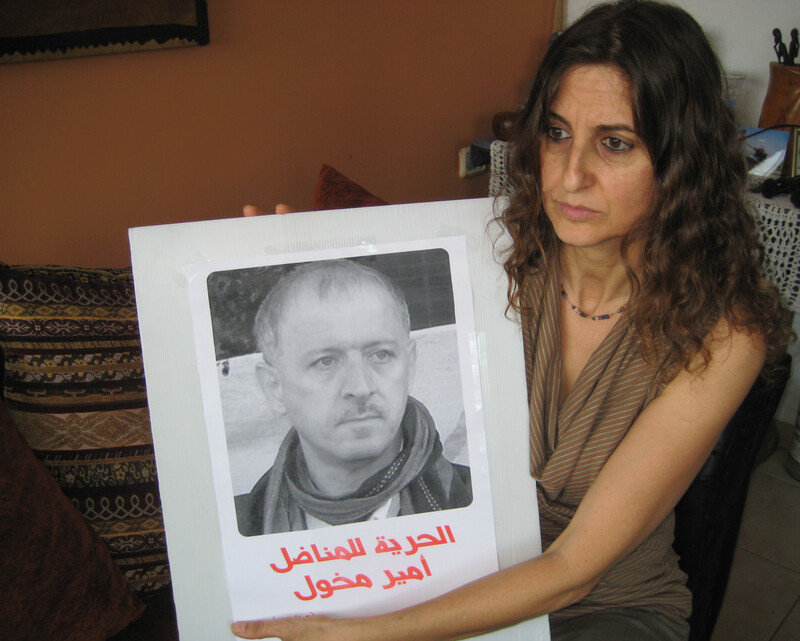Rights and Accountability 29 December 2011

Janan Abdu: “We need solidarity to keep us strong”
Prison officers have unleashed a new wave of oppression against prisoners. Letters to families sent by Palestinian political prisoners have ‘disappeared’, writes Ameer Makhoul in a letter to me dated 13 December. Several prisoners have been confronted with this problem since Israeli Prime Minister Benjamin Netanyahu announced his plans to impose harsher conditions on Palestinian prisoners in Israel’s prisons in June.
Five 12-page handwritten letters that Ameer sent to his family did not arrive. He writes:
“So Palestinian political prisoners should copy and copy in order to have an alternative in case the letter ‘disappears’. Disappear means lost on the way. But where? The procedure is to keep the envelope open, to be collected as all letters by a Palestinian political prisoners representative [in jail] and brought to the prison authorities. They read it (no matter how personal it is). They close it and send it through to post on account of the prisoners. The letter can take two days, one week, two weeks, one month and can also take all time and still not arrive at the home address. The prison officials’ oral reply to my request for clarification was that they do not do that [provide a clarification]. What they can do is to acknowledge to prisoners that a letter would not be sent for political or security reasons as covered by the law. Through family, lawyers and Members of the Knesset [Israeli parliament] I questioned the postal authorities but there is still no answer from this side. Is there abuse within the post? Does the Shabak (internal Security Agency) have access to control the letters? At what stage? After it has been sent? Last week I got a letter dated 7 December from MK Haneen Zoabi who is very active on the Palestinian political prisoners cause. The envelope was opened (crushed) although by law the prison authorities are not authorized to open letters sent by Members of the Knesset. On the back of the envelope the prison authority wrote: ‘It has been received open by post.’ I believe I will get no answer – neither from the post nor the prison nor the Shabak. But the answer is clear, very clear. By the way the prison authority is not replying or answering in writing. Just orally. While any demand by a prisoner should be in writing. This is the rule. The [Israeli] policy escalation is to disconnect the Palestinian prisoners from the entire world: their families, friends, and solidarity people. The isolation policy is both individual and collective. The system is based on oppression, it is such a huge machine where no one can see all the components and what each component does. But for the prisoners the picture is clear as well as the answer. An international fact-finding mission of human rights organizations could be very useful.”
“The spirit of Palestinian political prisoners will never be broken”, he adds.





